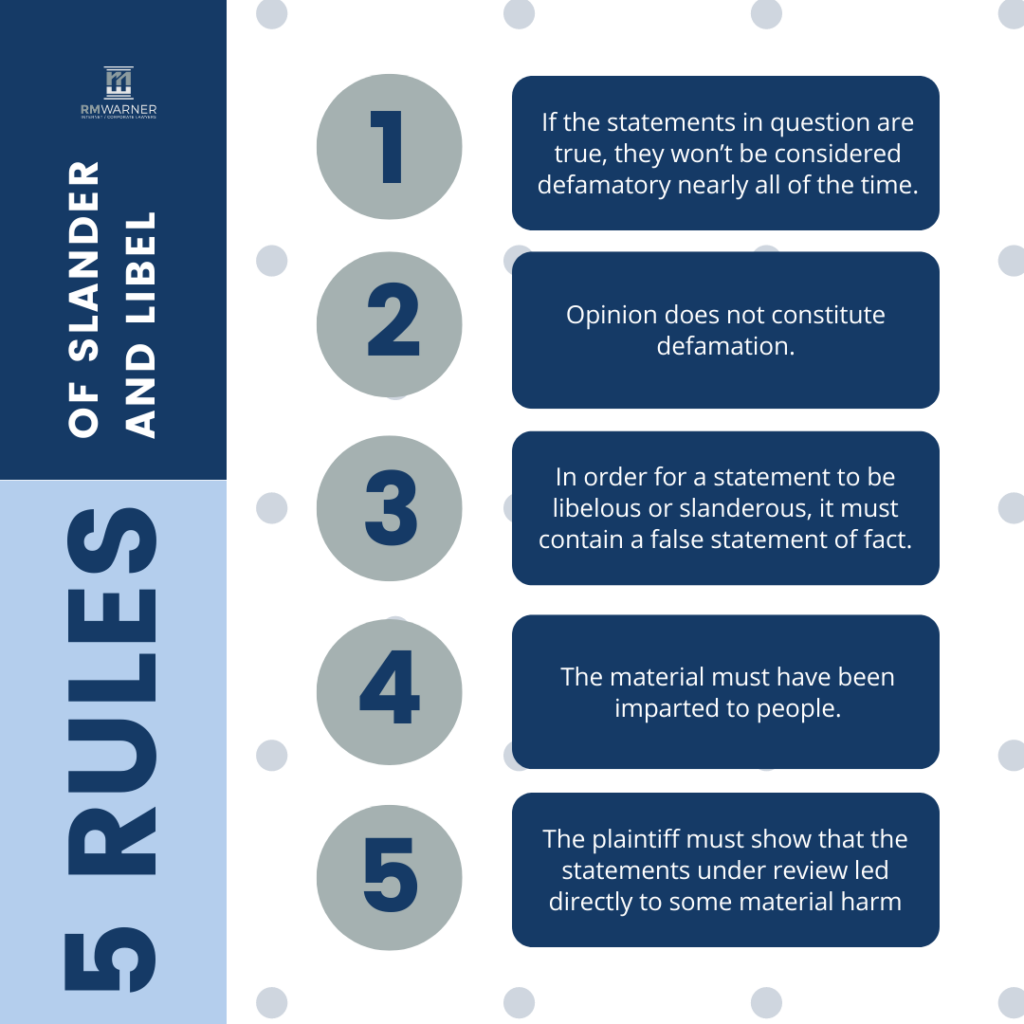What Is the Test for Defamation?
What Is the Test for Defamation?

As a business owner, protecting your reputation is vital in today’s digital age. Defamation can cause significant harm to your professional image, leading to financial loss and a damaged brand. Understanding the test for defamation is essential for safeguarding your interests and taking appropriate legal action. Our blog post today explores the concept of defamation, explains the test for defamation, and provides examples to help you navigate this complex legal territory. If you believe you or your company have been defamed, consult an experienced defamation lawyer to learn what can be done in your specific situation.
Defining Defamation
Defamation refers to the act of making false statements that harm the reputation of an individual or business. It can take two forms: libel and slander. Libel involves making defamatory comments in written or printed form, such as online reviews, social media posts, or articles. Slander consists of making defamatory statements orally, through spoken words or gestures. Both forms of defamation can have severe consequences for business owners, entrepreneurs, and e-commerce businesses, which is why a defamation lawyer should be consulted as soon as possible.
Understanding the Test for Defamation
Specific points must be proven to establish a case of defamation. These comprise what is commonly known as the “test for defamation.” While details vary depending on the jurisdiction, the following elements generally apply:
- False Statement: The statement must be untrue. Truth is an absolute defense against defamation claims, as the law prioritizes the protection of accurate information.
- Publication: The false statement must be communicated to a third party. It can be spoken, written, or even implied as long as it reaches an audience beyond the defamer and the target.
- Identification: The defamatory statement must identify the plaintiff as the subject of the statement. It is crucial to establish that the statement refers explicitly to the individual or business being harmed.
- Harm: The defamatory statement must cause harm to the reputation of the plaintiff. This harm can be demonstrated through tangible losses, such as financial damages or a decline in business opportunities.
To better grasp the concept of defamation, let’s explore some hypothetical examples:
- Online Review: Imagine you operate an e-commerce business in Arizona, and a customer posts a negative online review claiming that your products are of poor quality. However, if this statement is untrue and you can demonstrate that it has caused financial harm to your business, you may have grounds for a defamation claim.
- False Accusations: As an entrepreneur, you might find yourself facing false accusations that you engaged in fraudulent business practices. If these accusations are published in a local newspaper, harming your reputation and leading to a significant decline in clients, you may have a defamation case.
- Employee Rumors: If an employee spreads false rumors about your business’s financial stability to colleagues and clients, causing damage to your professional relationships and resulting in financial loss, you may have a claim for defamation against that individual.
Your Defamation Attorneys in Arizona
Defamation can have severe implications for businesses, entrepreneurs, and e-commerce owners. Understanding the test for defamation is crucial for protecting your reputation and seeking appropriate legal recourse.
If you believe you have been a victim of defamation, consult a reputable defamation lawyer at RM Warner Law. Our skilled attorneys can guide you through the process of filing a claim, ensuring that your rights are protected, and your reputation is restored.
Call us toll-free at 1-866-570-8585 or complete our online contact form to schedule a consultation with our experienced legal professionals. We can explain your legal options and how to safeguard your business’s reputation.
Similar like this
You also might be interested in
Understanding Anonymous Defamation: How It Happens Online
Anonymous defamation occurs when false statements are made about a [...]
Why Influencer Lawsuits Are on the Rise: And What It Means for the Industry
The influencer marketing industry has grown significantly over the past [...]
How to Remove Defamatory Content from the Internet: Legal Options Explained
In today’s digital world, defamatory content can spread quickly online, [...]
What’s the Difference Between Libel and Slander? A Legal Breakdown
A false statement can spread quickly and damage someone’s reputation, [...]






